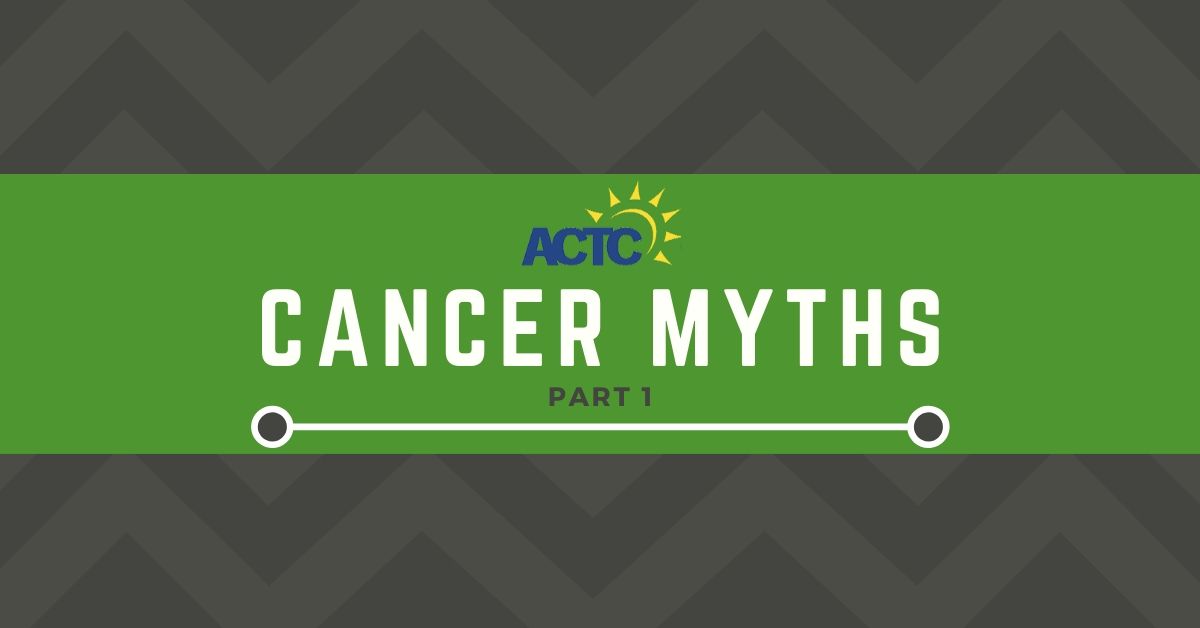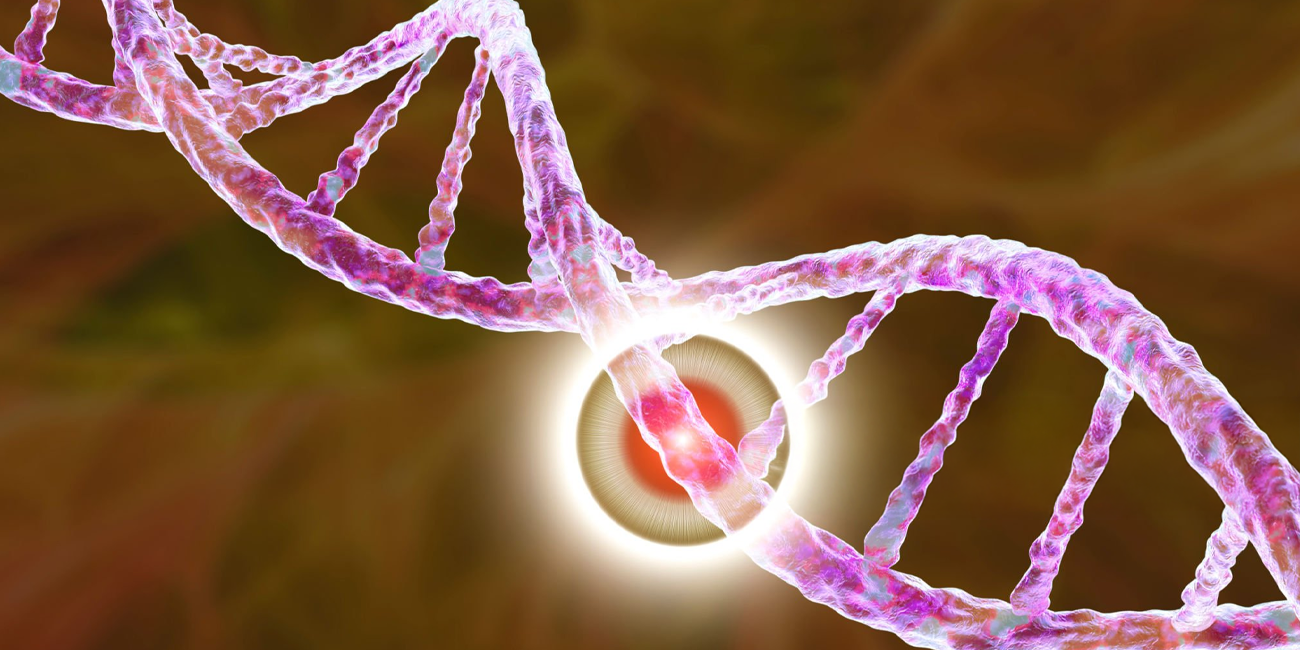
Book a Consultation
Thank you!
Your form has been sent successfully.



March 25, 2021
The word cancer is scary for the majority of people and online searches often only make matters worse. While the internet can provide a wealth of helpful and credible information about cancer and its many treatments, the internet is also full of pages that spread myths and other common misconceptions. These false articles only add to the panic surrounding a cancer diagnosis and can lead those diagnosed to ignore the doctor’s orders. Today we’ll talk about some of these common myths and why they are false.
When someone loses a loved one to cancer, it can feel as though we have made no progress at all with treatments. This is an understandable feeling, but it is false! In the last decade, the survival rates of those diagnosed with cancer have doubled. These figures are based on patients that were treated in the last ten years, so it is very likely that the rates have risen even further! It seems like every day there is some new breakthrough with cancer treatments.
Far gone are the scary days from the 50’s and 60’s where the treatments for cancer seemed to be worse than the original diagnosis. From the latest ‘smart’ drugs to our ability to target radiotherapy with pinpoint accuracy, treatments today are safer and aim to be as quick and painless as possible.
There is still much to learn. Some forms of cancer, such as lung, brain, and esophageal cancers, are still difficult to treat, but researchers are working diligently every day to learn more about these diseases. Hopefully someday, these researcher’s hard work will pay off and nobody will lose their life prematurely to this disease.
While some older adults may suffer from illnesses that may limit their doctor’s ability to use certain treatments, there is no age limit for cancer treatment. The same factors and considerations must be looked at by the doctor before treatment whether the one diagnosed is young or old. The majority of older patients benefit from treatment just as much as younger patients.
Cancer is by no means a new, modern, or “man-made” disease. Cancer has existed for as long as humans have been around, or for that matter life in general. Cancer is simply damaged or mutated DNA in our cells. There is evidence of cancer in ancient Greek and Egyptian writings. Signs of cancer have even been discovered in dinosaur bones! While typically these errors are caught by the other cells in the body, when they slip through the cracks and are allowed to spread, these errors become a problem.
While it is true that diseases like cancer are on the rise, a huge factor of this is age. Due to medical advances, people are now living longer. As we age, it is completely normal for DNA damage to become more common and build up in our cells, which can give cancer the chance to develop. Lifestyle, diet, and environmental factors that can increase your risk of cancer are also prominent now, accounting for the rise in cases, but cancer also has many natural causes. One in six cases of cancer are caused by certain bacteria and viruses.
So while cancer is more common today, it is by no means a modern disease.
There is absolutely no scientific evidence that shows that cancer will spread after being exposed to the air during surgery. In fact, surgery is one of the most effective treatments for many types of cancer. Many who believe and spread this myth do so because of how they feel after the surgery is performed. Many feel worse after a surgery than they did before, regardless of if the surgery is for cancer or removing kidney stones. Surgery requires time for recover.
Some also believe this myth because the doctors find more cancer during the surgery than what was shown in their scans. This doesn’t happen because the cancer reacted to the air and spread. The cancer was already present in the body; it just hadn’t appeared on the tests and became visible during the surgery.
While there are some types of cancers that can be passed down from one generation to the next, they are minimal, only 5-10%. The majority of cancers are caused by genetic mutations and changes that happen throughout a person’s life. Many of these changes are caused by life choices, such as smoking and refusing to wear sunscreen. This is why everyone, regardless of your family’s history of cancer, should get regular screenings for cancer.
Often the actual treatment of cancer begins only if the cancer causes symptoms or shows signs of growing. If the cancer is found in an early stage, is not growing, or the doctor believes that the treatments would cause the patient more discomfort than the actual cancer, the doctor may stick with keeping an eye on the cancer rather than recommending the patient start treatment. The cancer and symptoms are then closely monitored, so that treatment can begin immediately if anything changes or worsens.
By no means are those diagnosed with cancer stuck in a hospital all the time. It might surprise you to learn that the majority of people with cancer are able to continue their daily lives, continuing with their jobs, social activities, and stuff around the house. Most are able to receive their treatment from local clinics and are not required to stay in the hospital for any extended amount of time.
While it is encouraged that everyone should limit sugary foods for a healthy diet, there haven’t been any conclusive studies that say that those diagnosed with cancer must cut any and all forms of sugar from their diet. Sugar is a very broad and complex term, as there is a range of molecules that are all considered sugar. This includes simple sugars that are found in plants.
All sugars are carbohydrates, otherwise known as carbs, which are molecules that are made up of carbon, hydrogen, and oxygen, three elements that are crucial for living things. Whether the carb comes from a carrot or a cookie, it is broken down by our digestive systems to release the sugar which is then sent throughout our body. Sugar, in its basic, broken down form, powers our bodies. Our body doesn’t get to pick and choose which cells are fed sugar from different sources.
As you can see, there are a lot of myths surrounding cancer. Fear and uncertainty only fuel the fire for these myths.


December 24, 2025
It's natural to wonder if testosterone replacement therapy (TRT) is sa...
KNOW MORE

December 24, 2025
A rash that will not calm down is scary, especially when it changes or...
KNOW MORE

December 24, 2025
Florida’s lung cancer burden remains significant and affects many fa...
KNOW MORE

December 24, 2025
A partial hysterectomy, also called a supracervical hysterectomy, is s...
KNOW MORE

December 24, 2025
Finding a rash on your breast can be unsettling, but remember, many ra...
KNOW MORE

December 16, 2025
Hearing a HER2 gene mutation on a report can feel scary, but it also p...
KNOW MORE
